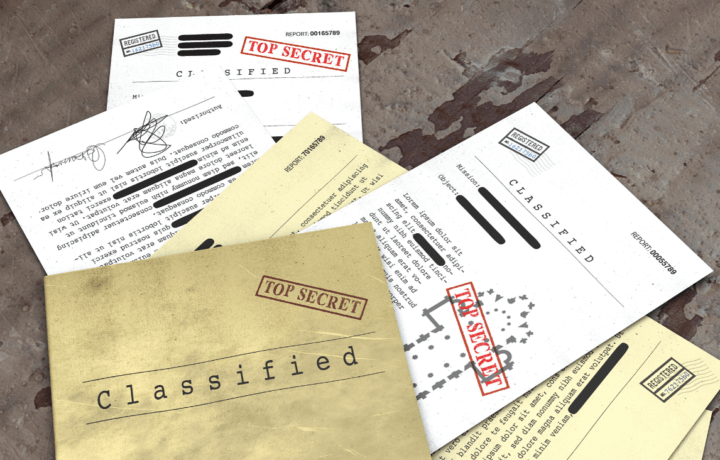Long before JWICS and SIPRNet, classified material still had to get from “point A” to “point B” in the regular course of government business. Even now, with the availability of classified email technology, there are times when classified material – documents, photographs, or other physical items – must still be hand-delivered. For example, physically transporting classified material to an inter-agency meeting where it will be discussed is often the only way to get it there.
Courier Card Needed to Transport Classified Information
In these situations, a security clearance is not standing alone, sufficient authorization to transport classified information out of a secure area. In addition to the appropriate level of access to review and possess the documentation at issue, a clearance-holder must also hold a classified information courier card issued by their employing federal agency, have a valid reason for transporting the classified material, and follow strict security rules in handling the classified material.
Familiar in Reality with Courier Card and Not Just Theory
I’ve found in my law practice that many clearance-holders, even those who work with classified information regularly, are familiar with courier cards only in theory. They lack a practical understanding of what a courier card is and isn’t – not to mention the rules surrounding their use. One client recently quipped that the courier card was like the security clearance-equivalent of the Loch Ness Monster: a lot of people have heard about it, but few people have actually seen one.
Courier Card is Not Blanket Authorization
With that in mind, there are a few things all security clearance-holders should understand about these not-so-mythical cards. First, a courier card isn’t a blanket authorization to carry around classified information. It is designed primarily to be presented on demand to security authorities searching bags – airport screeners or classified facility security guards, for example – to demonstrate that the classified materials in the bearer’s possession are authorized. That necessarily means that the individual is traveling, as previously referenced, from “point A” to “point B” in furtherance of a bona fide job duty as opposed to merely out for a stroll with a bag full of national secrets.
Know Your Geography
Second, a courier card often comes with geographic restrictions tied to the individual’s duty station and/or the area of expected travel. Most commonly, courier cards authorize the bearer to transport classified information within the National Capitol Region. It is rare that a courier card authorizes carte blanche travel throughout the United States, and even rarer still to see authorization for overseas travel. The latter is typically limited to specially-trained Diplomatic Security Service couriers employed by the State Department to escort classified shipments and diplomatic pouches abroad.
Pay Attention to All Procedures
Finally, possessing a courier card does not relieve the bearer of his or her duty to comply with other required security handling procedures – including those pertaining to classified material storage. A courier card doesn’t authorize the bearer to store classified material at his or her residence or in his or her car unattended. While that may seem obvious to some readers, it is a fact that plenty of authorized couriers have exceeded their authorization by playing fast-and-loose with the rules. Rather than becoming one of those people, think of a courier card as just enough flexibility to get one’s self in trouble. Because without scrupulously understanding and adhering to the rules, that’s exactly what it is.
This article is intended as general information only and should not be construed as legal advice. Consult an attorney regarding your specific situation.




